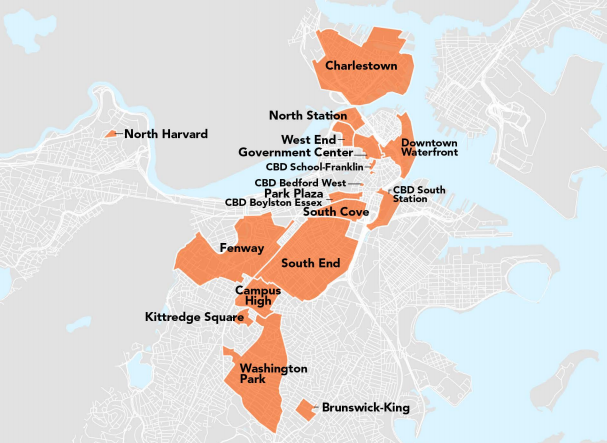
Looking for an extension of its urban renewal authority, the Boston Redevelopment Authority will host the first in a series of public meetings this week, aimed at educating community stakeholders on the controversial practice that allows the agency to take private land through eminent domain – something the city’s Olympics supporters and critics are all too familiar with.
The North End Waterfront reports that urban renewal’s roots date back to the American Housing Act of 1949. Pitched as a way to stimulate city redevelopment after World War II, urban renewal typically comes “at the expense of poor and marginalized residents that were forced to relocate,” according to the North End Waterfront.
Since late 2014, eminent domain has been a topic in heated Olympic discussions. Boston 2024, the private group of Olympics stakeholders trying to bring the 2024 Summer Games to the Hub, has targeted Widett Circle as the potential site of a new stadium. The current owners of the land, occupied by meat and seafood wholesalers, have had a testy relationship with the Olympic group zeroing-in on the property – specifically, over concerns that eminent domain would be used to seize the property. But Mayor Marty Walsh has said the city would do no such thing.
Arguably Boston’s most extreme urban renewal saw the BRA ransack about a third of downtown, including the West End, paving the way for new Government Center buildings and the Central Artery.
Other examples of smaller-scale urban renewal include the development of vacant North End lots, such as Christopher Columbus Park and Long Wharf.
Now the BRA is looking for the green light to extend its urban renewal powers, and spur further development along the waterfront, the West End, North Station and Government Center – among other areas. Featured projects in urban renewal areas include: the Boston Public Market, the new MBTA Government Center Station, a new park at the Aquarium, Millennium Tower and Fenway Center.
BRA’s urban renewal authority hasn’t been extended since 2005 and is set to expire this year. Any urban renewal extension requires final approval at the state level.
The BRA has worked with Mayor Walsh’s office to put together an advisory task force to help engage community members throughout the extension process. The task force is composed of stakeholders from targeted urban renewal neighborhoods and the construction industry, as well as other neighborhood representatives.
The first public meeting is scheduled for Tuesday night, from 6 p.m. to 8 p.m., at City Hall.

